1. Worrying, Waiting, and Bedding Down
1.1. Women in Egypt undergo IVF or ICSI move "from meds to beds"
1.1.1. Importance of the bed as an Egyptian cultural site: 2 stages are the very heart of IVF and ICSI (Once hormones are taken first 30 days are split in to two15 day cycles)
1.1.1.1. 1st half of treatment: "oocyte pickup" involves retrieval, or "harvesting multiple ova from women's super-ovulating ovaries" via general anesthesia either performed surgically(incisions in the abdomen) or transvaginally (probes inserted into the vagina)
1.1.1.2. 2nd half of treatment:"embryo transfer" (tortured process of waiting, worrying usually from home) where fertilized embryos are transferred back to the uterus, usually through the vagina
1.2. Women worry and based their immobilization on cultural notions of reproductive ethnophysiology, women hope that by remaining still and inactive, the embryos will "stick or hang"
1.2.1. men fear passing on infertility to offspring (biological transmission of "weakness"), thereby alluding to the ways in which biology itself constitutes a fundamental arena of constraint on the act of ICIS procedures
1.3. Both women and men suffer from procedures – hormones, surgery, etc.
1.3.1. ICSI at centers lowers overall success rate because most infertile patients
2. The Unhappiness of Hormones
2.1. Most women who take hormones complain of the pain (with injections) and inconvenience
2.2. Women's two biggest worries:
2.2.1. 1) Side effects
2.2.1.1. Symptoms include: increase greasiness of hair/skin, moodiness, agitation, depression, weight gain (6- 99lbs), abdominal bloating, and pregnancy-like symptoms, cramping, nausea, vomiting, weak, deadly effects
2.2.2. 2) Drug avliability
2.2.2.1. Global fluctuations drug supply pipeline, resultant local shortages of critical hormonal agents, high prices for imported medications, and the formation of black market drug rings to get these "legal drugs" to desperate consumers
3. Conclusion
3.1. In Egypt, test-tube baby making bespeaks this world of embodied gendered suffering, with somatic or spiritual "wounds" occurring at multiple sites. (Women and men suffer from procedures too hormones, surgery, etc)
3.1.1. Wounds to the male ego, ultimately suffered, physically through ICSI, by a profoundly unhappy and emotionally burdened wife
3.1.2. Local drug shortage/ high manufacturing pricing internationally = another source of suffering
3.1.3. Drug registration and Neocolonial Relations = dependency upon Western-based pharmaceutical companies
3.2. Men's embodied experiences of infertility and NRTs have been seriously underprivileged, and even erased by infertile scholars, feminist critics of these technologies, and those of us who "walk in between"
4. Embodying the Patriarchal Bargain
4.1. Embodied suffering is common in the world of Egyptian test-tube baby making
4.1.1. Almost every woman who arrives at an Egyptian IVF center brings with her a tortured "body history" usually as a result of years of relentless treatment seeking
4.1.1.1. Most infertile Egyptian marriages are characterized by "patriarchal connectivity" which manifests itself conjugally in the form of intense bonds of live, protectiveness, and emotional intimacy (particularly in infertility stems from husband)
4.2. (Male infertility is a particularly emasculating condition)
4.2.1. Egyptian women assume the responsibility for husband;s infertility , usually initiating repeated physician visits, even if they been told (and have proved) they are not infertile
4.3. Women who consents to the NRTs in order to overcome her husband's reproductive pathology is, in fact, making a "patriarchal bargain"
4.3.1. Limited options for these wife: According to Lorber, IVF use among healthy wives (of all all classes) of infertile men is "not a true choice, given the cultural pressures for women to become mothers"
4.3.1.1. Physical and mental suffering--the ways in which NRT are experienced by and through the psyche and the soma.
4.4. The 3 main arguments:
4.4.1. NRTs to overcome male infertility embody a fundamental gender inequality, in that these techniques are carried out on women;s bodies even when the bodily pathology is located in the male.
4.4.2. Who suffers more? Women's bodies are regarded as "particularly permeable," men's bodies, "by contrast seem to remain relatively stable and untouched, even when male pathologies are at issue"
4.4.2.1. Particularly downplaying men's contribution to infertility treatment seeking. Men's bodies are also heavily "doctored," they are subjected to the same "nasty medications" as their wives, and agonizing genital operations in the pursuit to fertility
4.4.3. The local specificity of bodily conceptions, complaints, concerns, and lived experiences are highly culturally specific
4.4.3.1. Most Egyptians themselves do not deploy the language of "risk," (as a basic public health discipline), among the educated-elites, those who confronted or contemplated IVF treatments "most likely" perceive the health-related fears
5. Body Histories
5.1. For most Egyptian couples, IVF and ICSI represent the end of the line in a long history of medical interventions
5.1.1. They have already been "medically deflowered," as it were, through numerous genitally invasive, often painful diagnostic procedures and failed treatment attempts
5.2. Common causes of infertility:
5.2.1. Men
5.2.1.1. Semen analyses (ejaculation), however those with no sperm in the ejaculate (azoospermia) have undergone invasive painful procedures, mainly testicular biopsies
5.2.1.2. 71% of male infertility,, where 47% of all cases, or nearly half of the couples, male infertility was the sole cause
5.2.1.2.1. other causes include: inherited, mumps, diabetes, STD, schistosomiasis, smoking, air-borne toxins, heat.
5.2.2. Women
5.2.2.1. undergo diagnostic tests such as: (HSG) pelvic x-ray is taken after dye is injected into the upper genital tract, and diagnostic laparoscopy (visualize condition of ovaries, Fallopian tubes, and uterus
5.2.2.2. 47% Tubal infertility very common, 14% endometriosis or uterine fibroid tmors
